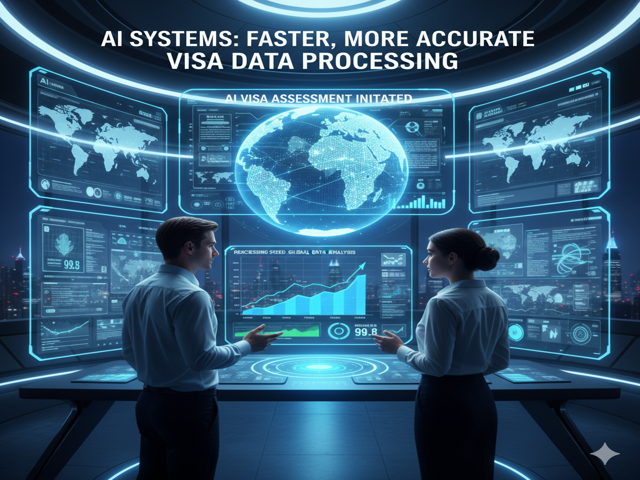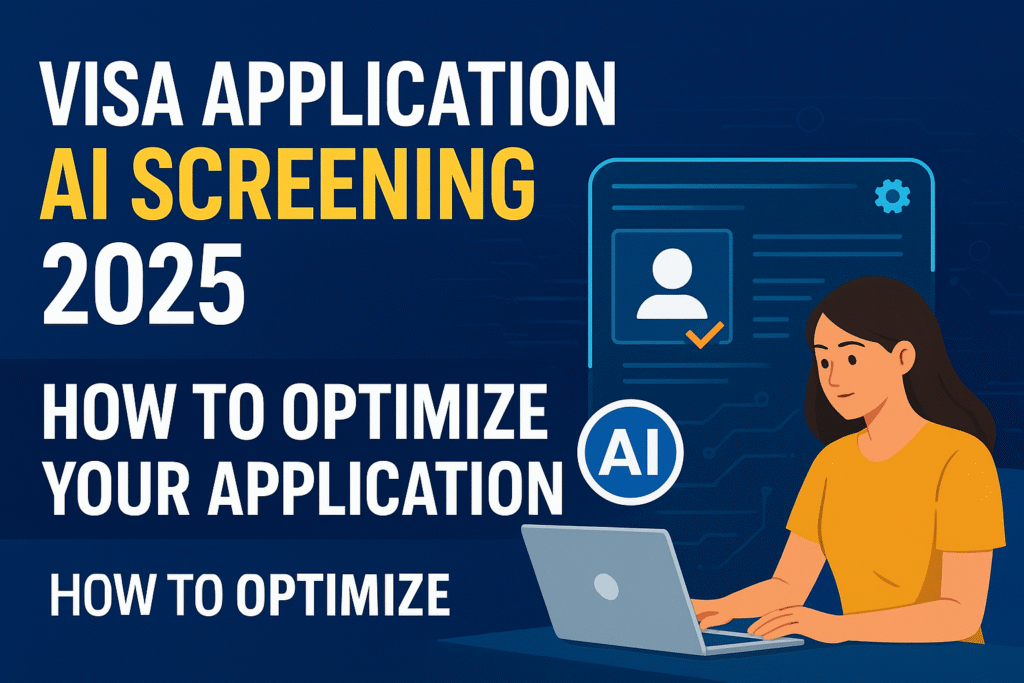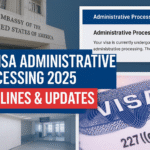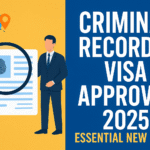Visa Application AI Screening 2025 marks a revolutionary step in global immigration. Governments are now using artificial intelligence to process, analyze, and approve visa applications faster than ever before. But with technology at the center, understanding how to optimize your application for AI review is more important than ever.
In this guide, we’ll break down how AI systems screen visa applications, what data points they analyze, and how you can tailor your documentation to improve your success rate.
What Is Visa Application AI Screening?
AI visa screening is an automated system that uses machine learning algorithms to assess your visa application. It analyzes data such as:
- Travel history
- Financial stability
- Employment background
- Biometric data
- Intent and risk factors
Countries like the United States, United Kingdom, Canada, and Singapore have begun implementing AI-assisted immigration checks to manage the surge in applications efficiently.
Source: U.S. Department of State — Visa Processing Updates
How the AI Screening Process Works

- Data Collection:
AI gathers information from digital forms, uploaded documents, and previous travel records. - Risk Profiling:
Algorithms compare your profile against established risk metrics — such as overstays or incomplete data. - Pattern Recognition:
AI detects inconsistencies across applications, preventing fraud and human error. - Final Decision Support:
A visa officer reviews the AI’s recommendations before issuing a final verdict.
This makes the system both faster and more consistent, but also means that small mistakes in your digital form can trigger automatic rejections.
How to Optimize Your Visa Application AI Screening Review
1. Ensure Data Accuracy
AI systems cross-check every field across multiple databases. Any mismatch in names, dates, or employment records can flag your application.

✅ Use consistent spelling, dates, and formats across all documents.
2. Submit Machine-Readable Documents
AI performs better when your uploads are clear, high-resolution PDFs or scans. Avoid handwritten or low-quality images.
✅ Use text-based PDFs for employment letters and bank statements.
3. Provide Structured Data
Some countries now use online visa portals that allow structured uploads (like XML or JSON fields). Fill these out completely to help AI process your file faster.
4. Avoid Red Flags
AI models analyze your digital footprint and social media data in certain regions.
✅ Avoid inconsistent travel intent or incomplete itineraries.
5. Highlight Financial Stability
Machine learning models check for steady income, regular transactions, and sufficient travel funds.
✅ Maintain clean, transparent bank statements.
Countries Adopting Visa Application AI Screening in 2025
| Country | AI Usage | Visa Type | Expected Launch |
|---|---|---|---|
| USA | Fraud detection & risk analysis | B1/B2, F1, H1B | Q3 2025 |
| UK | Data-driven background checks | Skilled Worker, Student | Q2 2025 |
| Canada | AI triage system | Express Entry | Active |
| EU | Schengen AI pilot system | Tourist & Business | Q4 2025 |
| Australia | AI facial recognition & scoring | ETA, eVisitor | Active |
The Role of AI in Speeding Up Visa Decisions
AI screening cuts processing times from weeks to just a few days.

It automates repetitive steps like:
- Data extraction
- Risk evaluation
- Document validation
This allows embassies to focus on complex or high-value applications, improving fairness and transparency.
Ethical Concerns and Data Privacy
AI visa systems raise concerns about bias, data handling, and transparency. Critics argue that automation can overlook unique human circumstances.
To protect yourself:
- Always double-check the information you share.
- Request access to your application history if possible.
- Review official GDPR and data protection guidelines.
Future of Visa Application AI Screening Beyond 2025
By 2026, experts predict that 80% of visa decisions in developed countries will involve AI or automation. The shift means applicants must learn to treat their visa applications like digital resumes — clear, structured, and optimized.
Expect features like:
- Real-time risk scoring
- Predictive approval systems
- Global applicant databases
FAQs About Visa Application AI Screening 2025
Q1: Does AI make final visa decisions?
No. AI provides recommendations; human officers make final decisions.
Q2: How can I ensure my data isn’t misread by AI?
Submit clear, consistent, and machine-readable documents.
Q3: Are AI visa rejections appealable?
Yes, applicants can still appeal under standard procedures.
Q4: Which countries use AI screening?
The U.S., U.K., Canada, and parts of the EU are currently leading this transition.
Read About: Schengen Visa Rejection 2025: Powerful Insights & New Appeal Rules
Advise Agent – Visa Application AI Screening
Visa Application AI Screening 2025 is transforming how immigration systems work worldwide. Understanding how AI reviews your data — and optimizing your submission accordingly — can dramatically boost your success rate.
As technology continues to evolve, the smartest travelers will be those who prepare not just for interviews, but for algorithms.



